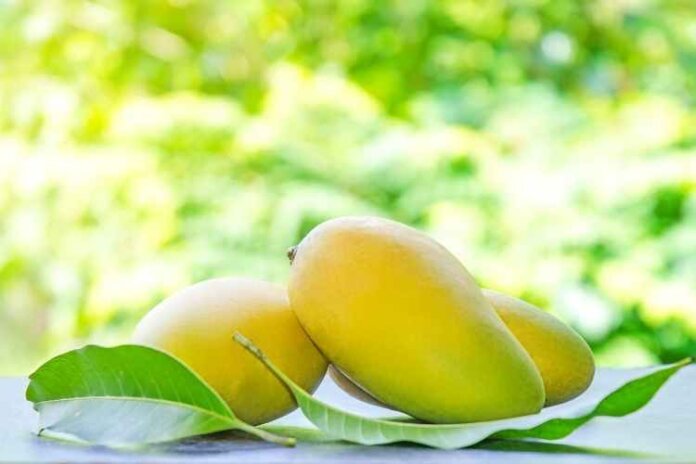
Most people feel conflicted about eating the prince of fruits, mangoes, particularly if they have diabetes. People wait for summer to eat their favourite fruit, mango. It is tasty and has essential nutrients, making it an excellent choice even for individuals who are committed to lowering their blood glucose levels. So, can diabetics eat mangoes or not? The answer to that is “Yes”.
Diabetes and Mango
Many people wonder if diabetics can eat mangoes. Mangos were usually omitted from the diabetic patient meal plan because of their high sugar and complex carb content. Recent studies have shown that the mango is a safe fruit for people with diabetes. Mangoes are now a preferred part of diabetic meals because they contain high levels of Vitamins E, K, and B complex (except for Vitamin B12). Mangoes are high in fibre and contain calcium, potassium, and copper, again making them suitable for diabetic diet plans.
The dietary fibre helps to slow down sugar absorption. They also have some omega-3 and omega-6 fatty acids but are low in fat overall. According to diabetes specialists, one serving of fruits during the day should include 15 grams of carbs, which is around half a cup of mango.
Mango Benefits for Diabetics
Mangoes contain a compound known as mangiferin which has anti-inflammatory and antiviral properties. They can also aid in the reduction of blood sugar levels and the strengthening of blood vessels. Both of these characteristics are important when it comes to diabetic meals and keeping one’s general health.
Certain mango components have been shown to supply the same cellular elements as anti-diabetes medications. According to a new study, consuming freeze-dried mangos lowers blood sugar levels in both men and women.
Mangos are high in vitamin A and C as well as antioxidants, which are recycled and may be employed to lower free radical levels. These radicals have a significant role in diabetes-related problems such as:
- Damage to blood vessels and kidneys
- Neuropathy
- Retinopathy
Is Mango Beneficial for Diabetes or Prediabetes?
According to research, mangoes have an important function in the therapy of metabolic illnesses. Eating a mango every day may protect against high cholesterol and diabetes.
High cholesterol is a significant predictor of metabolic syndrome, which is linked to prediabetes.
According to worldwide dietary standards, a serving size of fruit should include roughly 15 grams of carbs for people with diabetes and less than 25 grams for persons with prediabetes. This is the equivalent of half a tiny mango. The remedy is thus not to avoid, but to consume the appropriate amount.
Can diabetics eat mangoes at any time?
According to a few experts, we should avoid eating fruits after 5 p.m. and after supper since they are difficult to digest.
Mango Overconsumption Risks
Mangoes are high in sugars and carbs, but low in fibre and lipids.
Diabetics must refrain from eating mangoes in big quantities and should only include them in their diet on occasion. Begin with a small bowl and monitor how your blood glucose reacts to it.
This is not important to avoid mangoes entirely, but please limit your meal size.
Ripe mangoes for diabetes are another alternative.
You may have concluded by now that consuming mangoes in moderation is preferable to avoiding them altogether.
A measured quantity intake, on the other hand, might be rather dissatisfying for a devoted mango fan. This is why most patients with diabetes are encouraged to enjoy raw mangoes.
Raw mango does not pose the risk of excessive sugar content. In fact, eating fresh mangoes with yoghurt or rice helps to lower blood sugar levels.
Precautions to Follow
Insulin resistance test:
An FPG test checks a person’s blood sugar level after they haven’t eaten for 8 to 12 hours (generally overnight) to identify prediabetes and diabetes. An FPG test is included in the standard blood panel during your yearly physical, making it the most prevalent form of insulin resistance test.
Before including mangoes in your diet, you should see a nutritionist. Before and after eating mangoes, check your blood glucose levels. You should take sugar readings, make sure to use a small and portable glucometer or Insulin resistance test. Discuss the necessary dietary and lifestyle modifications with your nutritionist, dietician or doctor..
Conclusion
If you find mangoes enticing, there’s no need to eliminate them from your diet but be mindful of your portion size. The bottom line is to keep blood sugar levels stable.











